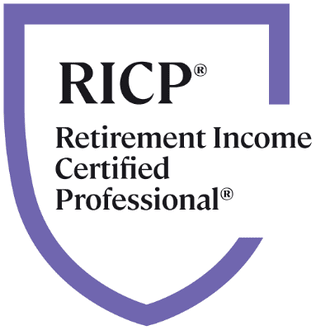
What Professors Should Know About Saving For Retirement
In a recent survey of college professors by Fidelity Investments, college professors gave themselves a "B" grade.1 With a profession that prides itself on learning new concepts, what's preventing professors from giving themselves an "A" grade?
In fact, nearly 1/3 of professors are not sure of the investment mix of their retirement savings. They don't even know if their investment risk corresponds to their goals for retirement. It is challenging to save for a goal if you don't know how much you need to save.
Other interesting findings are that many professors feel like they are "novice" investors. Over 1/3 of professors think they are "beginners", but this improves with age. In fact, even with Generation X, almost half of them feel inexperienced with investing.
The good news is that the survey found that professors' saving for retirement was a top priority. But over half are concerned that they will outlive their money in retirement. In addition, professors believed they needed the most help with Medicare/health care costs (34 percent) and choosing specific investments (32 percent).
In my opinion, being a professor for over 20 years, college professors should know three things about saving for retirement.2
How much will you get from Social Security? The first consideration is how much money you will need for retirement. It would be best if you planned for at least a 30-year retirement. Next, consider how much Social Security you will get. The costs of health care will rise as you age. You should factor in this as well. You also need to consider how you will fund any long-term care costs. You can figure out the amount of Social Security benefits at retirement at different ages. You can maximize your Social Security by delaying receiving it until age 70. You get a reduced benefit if you take Social Security before your full retirement age of 67 (for most).
How much will you get if you have a pension? If you are lucky enough to have a state pension, you can include this in the mix of your retirement assets. Some state plans are very generous and are indexed for inflation, but most are not. In Texas, for instance, the Teachers Retirement System (TRS) is not indexed for inflation, and it might only cover 2/3rds of your salary or less. Therefore, I strongly recommend that you save beyond a pension for retirement.
Use 403(b) or 457(b) plans? Most professors will have access to some form of defined contribution plan. It is wise to save as much as possible on these plans. Some plans offer a match that you should take advantage of. You can sock away $20,500 annually in 2022, with an additional $6,500 for age 50 and older catch-up. It is strongly advised to save beyond your regular contribution taken from your paycheck by your college or university. You can also save in an Individual Retirement Account (IRA) or Roth IRA. Try to save around 20% of your gross income for retirement.
Short of a public pension, the most common option for professors to save for retirement is through a 403(b) plan. The 403(b) is similar to 401(k) that workers in the private sector use to save for retirement. Contributions are automatically deducted pre-tax from the professors' take-home pay, and their money grows tax-deferred until it's withdrawn in retirement. The 457(b) plan is another defined contribution plan offered to state university employees.
The problem with most 403(b) plans is the lack of investment options. Professors must often select from a very short list of investment options. The list is often overloaded with insurance products like annuities and variable annuities with low returns, expensive fees, and surrender charges.3 These options can be beneficial by protecting your principal and perhaps guaranteeing a lifetime income. But with any guarantees, these often come with much higher costs in terms of higher fees. These higher fees and low returns can erode your retirement savings. I would talk to a financial planner before making your investment elections to avoid high-priced fees and ensure the investments match your risk tolerance and retirement goals.
Professors need to engage more actively in their retirement savings strategy. More should be done for a profession that prides itself on learning to be aware of the essential choices you can make for a successful retirement. Reach out to me on the contact page below, and I can guide you on how to save for retirement.
*This content is developed from sources believed to be providing accurate information. The information provided is not written or intended as tax or legal advice and may not be relied on to avoid any Federal tax penalties. Individuals are encouraged to seek advice from their own tax or legal counsel. Individuals involved in the estate planning process should work with an estate planning team, including their own personal legal or tax counsel. Neither the information presented nor any opinion expressed constitutes a representation by us of a specific investment or the purchase or sale of any securities. Asset allocation and diversification do not ensure a profit or protect against loss in declining markets.
2. https://money.cnn.com/2018/03/22/retirement/teacher-retirement-planning/index.html
3. https://www.daveramsey.com/blog/a-better-retirement-plan-for-teachers





